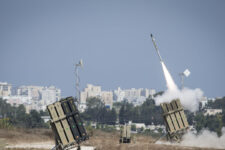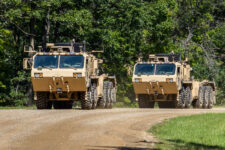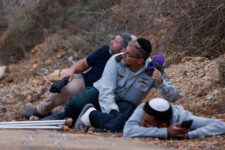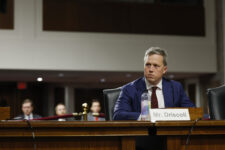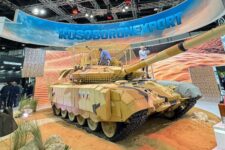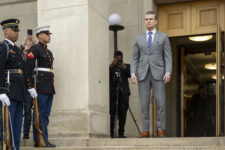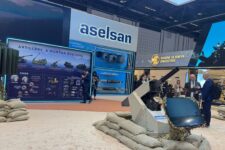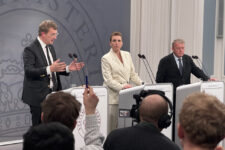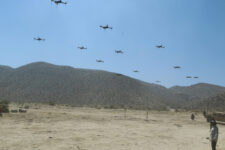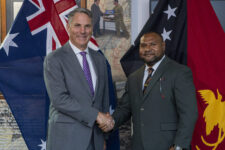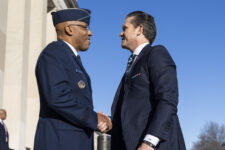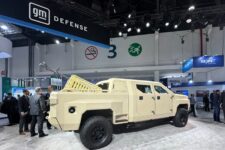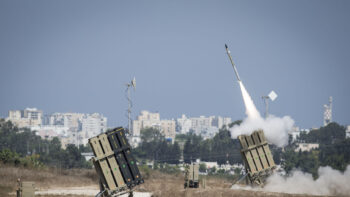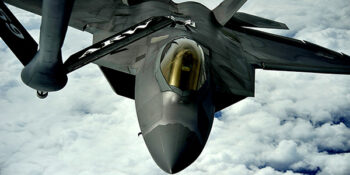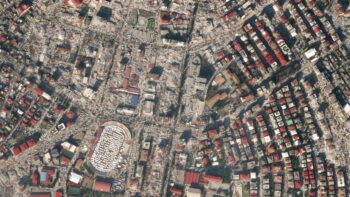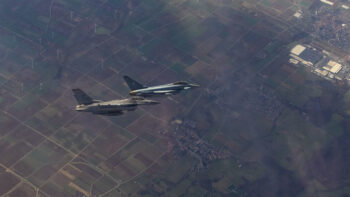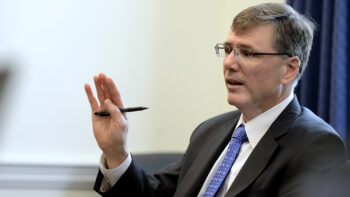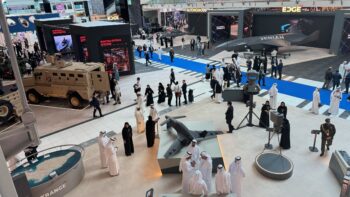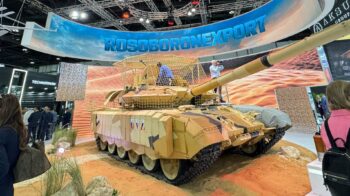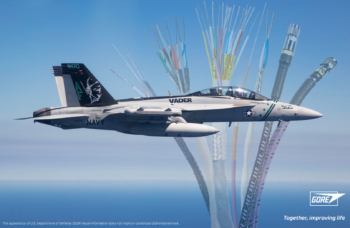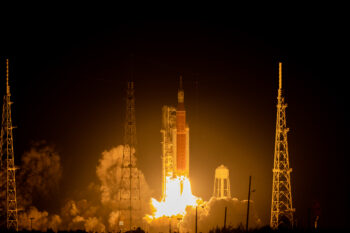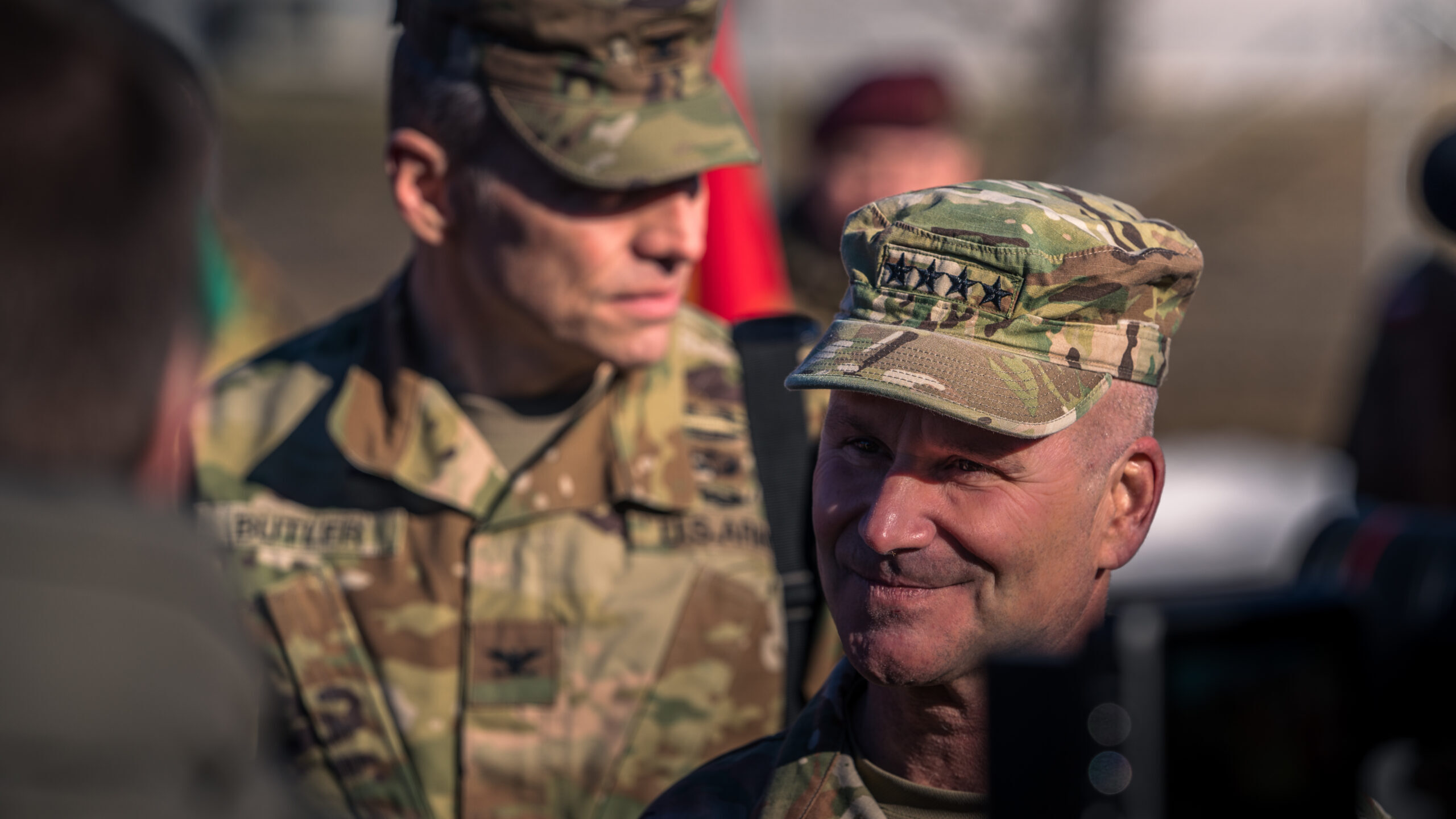
U.S. Army Gen. Christopher Cavoli, commander of U.S. Army Europe & Africa, speaks to international reporters, during a visit to Adazi, Latvia on March 5, 2022. (U.S. Army photo by Maj. Robert Fellingham)
WASHINGTON: President Joe Biden’s nominee for Supreme Allied Commander Europe said today NATO members will need to increasingly share the burden of supplying military capabilities to defend the continent as the US shifts its defense resources toward the Indo-Pacific.
“It’s imperative as we look at the emergence of the threat of China, for us to find ways to be able to handle the acute threat of Russia in a collective fashion with the alliance,” Gen. Christopher Cavoli told members of the Senate Armed Services Committee at his confirmation hearing. “There are a number of different ways that could play out. Almost all of those ways include increased burden sharing … on the part of other members of the alliance.”
The comments from Cavoli, currently head of US Army Europe and Africa, come as the US military balances the Russian military threat in Europe with what it views as the larger, long-term competition with China in the Indo-Pacific.
As to where the allies should look to focus their investments, Cavoli said that “probably most importantly” increase air and missile defense capabilities would be “welcome contributions” from NATO members. The four-star added that NATO allies could contribute more armored vehicles, though he noted that many of Europe’s ground vehicles are in need of modernization. He also named long-range fires and logistics.
“We would encourage the development of those capabilities across the alliance,” Cavoli said.
Cavoli was nominated in early May to take over EUCOM and SACEUR duties from Air Force Gen. Tod D. Wolters. His nomination comes amid Russia’s unprovoked invasion of Ukraine, which has led several European nations to boost defense spending and prompted Sweden and Finland to move toward NATO membership.
Related: Norway’s chief of defense: Finland, Sweden in NATO ‘opens up a lot of possibilities’
“Russia’s unprovoked invasion of Ukraine ushers in a new era in European security,” he said in his opening statement, adding that NATO is “more energized and unified” than it has been for years.
However, the US continues to push NATO allies to spend 2% of GDP on defense, a target for alliance membership that became a political flashpoint under former President Donald Trump. Asked by Sen. Josh Hawley, R-Mo., if NATO members needed to spend beyond the 2% currently required, Cavoli said he supports it.
“I know all of the land forces chiefs in NATO. Each one of them has a list of requirements. The requirements …would all take more than 2% of GDP,” Cavoli said. “So I am an advocate of spending more than 2% — at least 2%.”
As a result of the Russian invasion of Ukraine, NATO could grow in coming months if Sweden and Finland are admitted. Cavoli wrote in his advanced policy questions that the two Nordic countries would be “net providers” of collective security of NATO if they join. He called out their participation in exercises with US troops and said both nations bring “quite a bit” of military capability.
Under questioning from Sen. Tom Cotton, R-Ark., Cavoli outlined the strategic benefits for NATO and the military challenges Russia faces if the Nordic nations join the alliance. At sea, the entire coastline of the Baltic Sea, excluding the Russian enclave of Kaliningrad, would be NATO shores. That creates “geometric dilemmas that Russia does not have right now as they sail forth from St. Petersburg and Kaliningrad,” Cavoli said.
On land, Cavoli said that the Russia calculation on its border with Finland, where it hasn’t stationed significant levels of ground troops, will likely change.
“They thought they had a relationship with Finland that allowed them to do that,” he said. “This allowed Russia to concentrate ground forces in other places. That possibility will now go away for Russia.”
Rafael, Kratos team to produce solid rocket motors as Prometheus Energetics
The two firms become the latest entrant in the solid rocket motor business, which has boomed since the war in Ukraine began.
